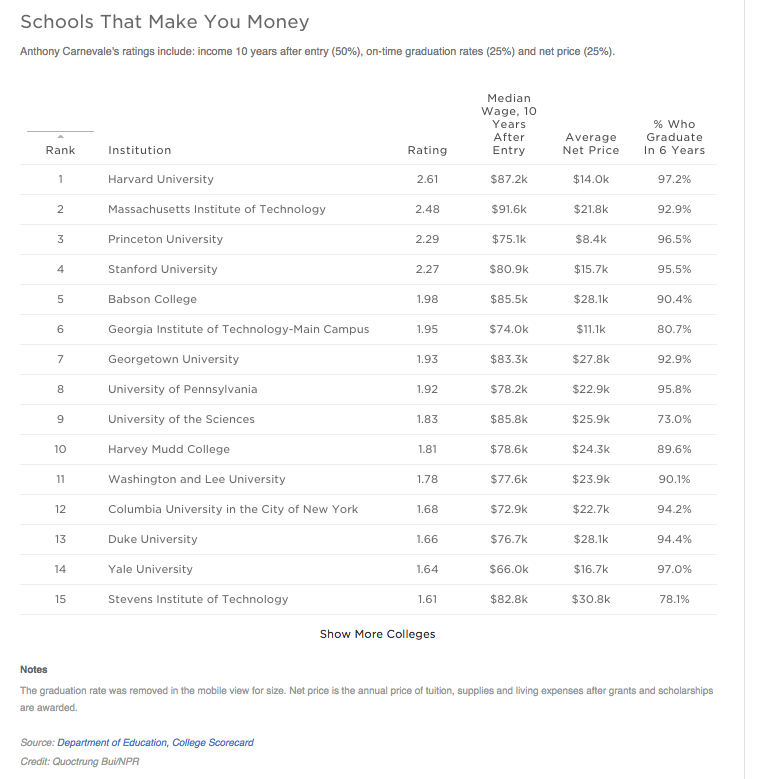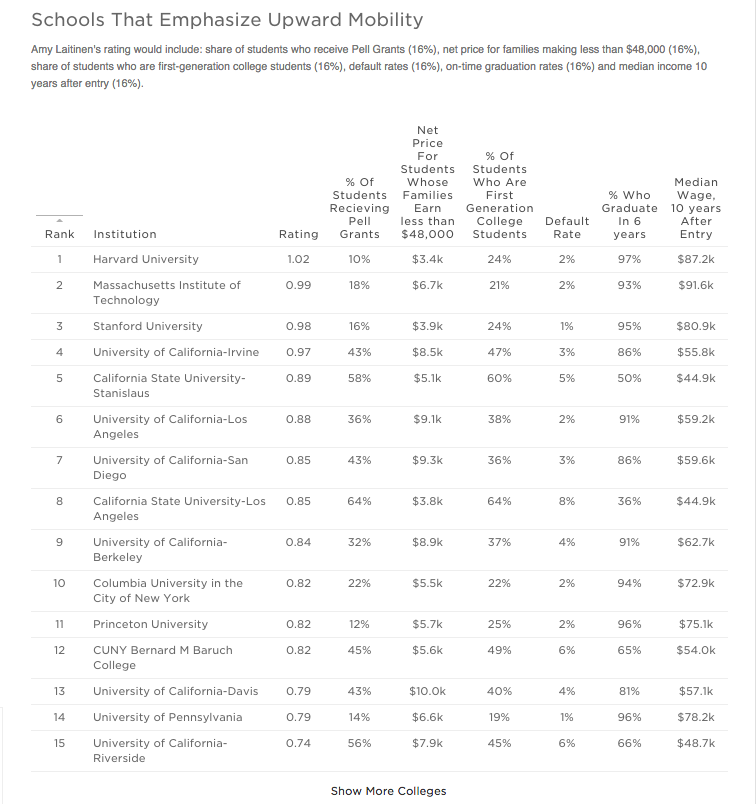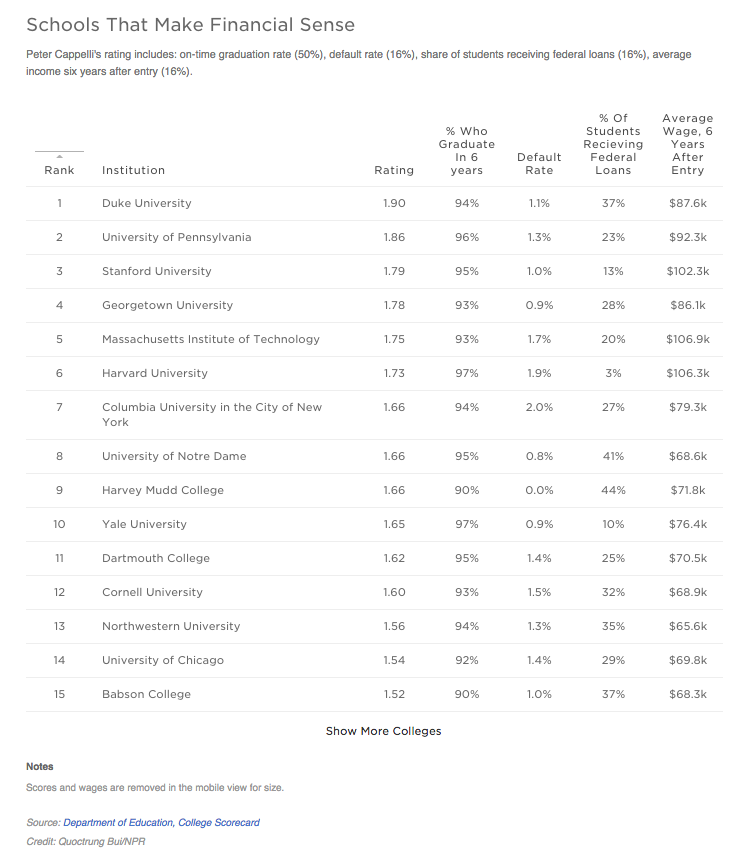NPR ranks colleges on salary, upward mobility & graduate outcomes
There are plenty of college rankings out there based on all sorts of different factors–quality of student, price, return on investment and more.
In light of President Obama’s decision not to provide federal rankings for colleges in favor of a College Scorecard, NPR took matters into their own hands and released their own sets of three different college rankings.
Colleges that make you the most money
Their first set of rankings focused primarily on income, since some experts believe money is best way to compare data across colleges. These rankings also factored in net price and graduation rates, since these can both affect how well off graduates are after leaving school.
They do acknowledge, however, that this data is skewed because a student’s choice of major has a greater impact on their future earnings than their college. And many of this data is self-selecting, since many of the top colleges attract students who are already likely to make a large amount of money based on their intelligence, work ethic and background.
Colleges with the most upward mobility
Since one of the main functions of college is provide a means for upward mobility, NPR also developed a set of rankings based on factors that provided lower-income students with a good education.
Their rankings were based on the percentage of students who receive Pell Grants (16%), net price for families making less than $48,000 (16%), share of students who are first-generation college students (16%), default rates (16%), on-time graduation rates (16%) and median income 10 years after entry (16%).
Colleges that make financial sense
Finally, NPR put together a list of what we believe to be the most valuable of their three sets of rankings: Colleges that make the most financial sense.
These colleges were ranked on their ability to graduate students on time and leave them with little debt and good financial opportunities to pay off what debt they have.
However, even these rankings aren’t perfect: On-time graduation rate (50%) was the largest factor, followed by default rate (16%), share of students receiving federal loans (16%), average income six years after entry (16%).
While these are all valuable factors, we would like to see net price as a additional factor and slightly less weight for graduation rates, since this doesn’t say much about how well-off the graduate is after college and may be self-selecting as well.
Using rankings to choose a college
Considering different types of college rankings and their respective factors is a big part of any college decision.
While no rankings should be taken without a grain of salt, and many are open to interpretation or criticism, they can help students understand the reality of financial factors such as student loans and can also open their minds to new colleges they may have not considered (such as Babson College in Babson Park, MA, which appears in the top 15 on two of these lists).
We help match students with colleges like these that offer a mix of quality and affordability, to help students receive a great education without forcing them (or their families) to take on enormous student debt to pay for it.
If you’re interested in learning how we can help your family make college affordable, call us at 1-888-234-3907 or contact us here and we’ll get back to you within 24 hours.
choosing a college, college rankings, college value, return on investment



